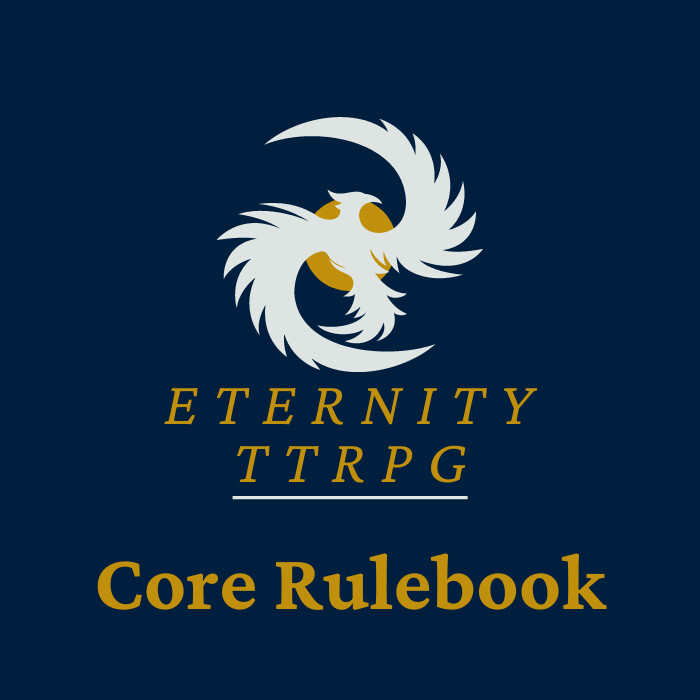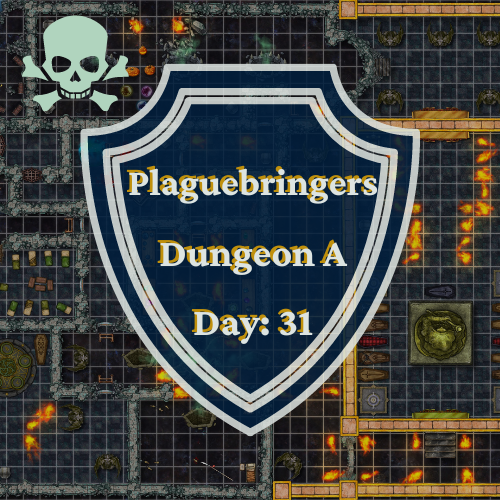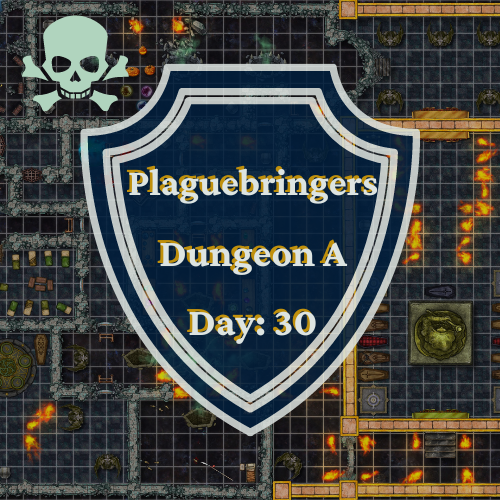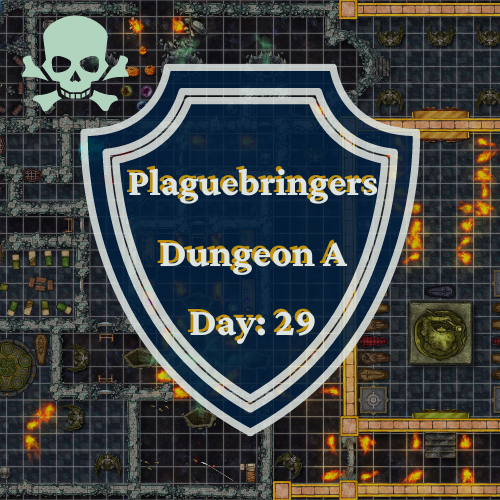Alarm 5e - D&D 5th Edition Spell Book
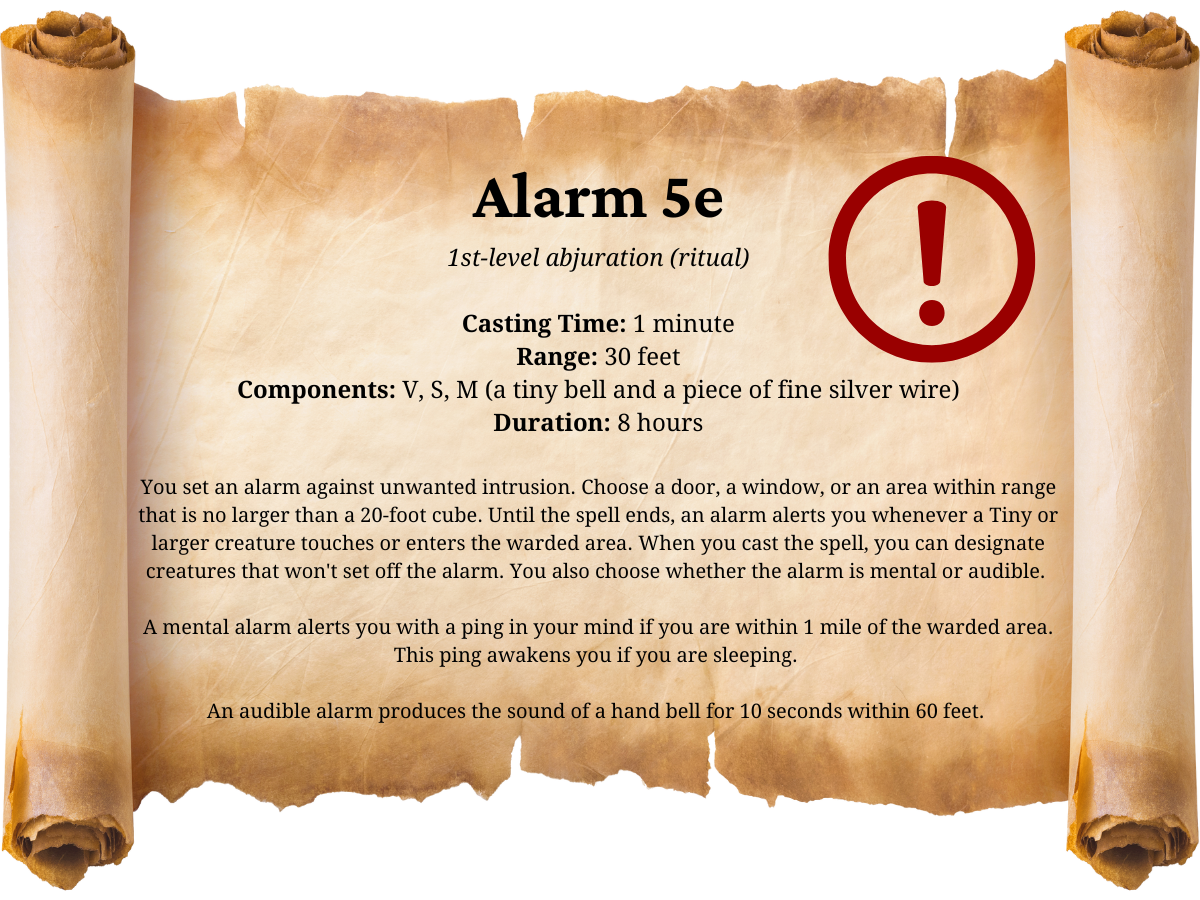
Alarm 5e Spell Effects
1st-level abjuration (ritual)
Casting Time: 1 minute
Range: 30 feet
Components: V, S, M (a tiny bell and a piece of fine silver wire)
Duration: 8 hours
You set an alarm against unwanted intrusion. Choose a door, a window, or an area within range that is no larger than a 20-foot cube. Until the spell ends, an alarm alerts you whenever a Tiny or larger creature touches or enters the warded area. When you cast the spell, you can designate creatures that won't set off the alarm. You also choose whether the alarm is mental or audible.
A mental alarm alerts you with a ping in your mind if you are within 1 mile of the warded area. This ping awakens you if you are sleeping.
An audible alarm produces the sound of a hand bell for 10 seconds within 60 feet.
All information about Alarm 5e comes from the DnD Player's Handbook.
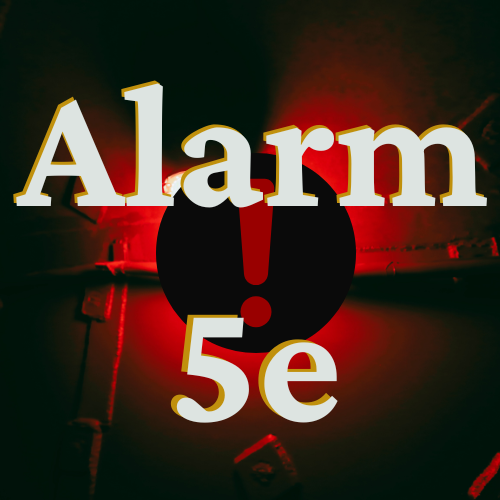
Classes That Can Cast Alarm 5e
The following classes gain access to casting Acid Splash 5e as part of their normal class spell availability:
- Artificer
- Ranger
- Wizard
- Additional Note: Oath of the Watchers
Alarm Usefulness
Alarm 5e is a very useful spell depending on your party's adventuring style, and chances that you'll be ambushed. Theoretically, alarm should be a top-tier spell almost no matter what adventure your group is undertaking. However, as I can personally attest to, some groups prefer combat encounters over roleplay or exploration-type encounters.
Obviously, alarm is not a combat-based spell, so that's why its effectiveness really depends on how your group plays. It should be noted that ritual-cast spells do not consume spell slots, and they do not need to be prepared first, before they may be used. This means that even if you spend your prepared spell slots on other utility spells or combat-based spells, you may still cast alarm at any time.
Given that alarm, even as a 1st-level spell does not take up a spell slot to cast, it should be a staple for probably every artificer, ranger, and wizard, regardless of how your group plays. You never know when being alerted to someone entering your warded space may provide you with a drastic advantage.
Combine Alarm 5e with the Following Spells
One of the most fun parts of playing D&D is the interaction so many spells have with one another. Since games like DnD allow for near-unlimited player creativity - especially when it comes to roleplaying-based spells like alarm 5e - you can really create some interesting combinations.
One idea you can use is to combine alarm 5e with silence 5e. Any area that you ward with alarm would then also take on a complete lack of sound. Of course, silence requires concentration, and only lasts for 10-minutes, so it would't be practical to use to ward an area while sleeping, or potentially even for taking a short rest.
However, you could cast alarm 5e on an area and silence it, as a trap. Whenever someone walks into the alarm area, they're deafened from silence, and so if your party has eyes on them, you can attack without them having any indication that the attack is coming (perhaps aside from the silence effect itself, if the target's particularly perceptive).
Alarm 5e Counters
There are many ways to deal with alarm 5e, though many of them show up beyond 4th level (such as dispel magic, which is a 3rd-level abjuration spell, attainable by some classes at 5th-level). Other options include scrolls or magic items that may disable the effect.
Short of having expensive resources or powerful dispel magic effects, the best way to deal with an alarm spell is to go around the spell effect's area of coverage. Of course, this approach may not always be effective, such as in a case where you need to pass through an alarm-warded cave, or break into an enemy's alarm-warded camp.
It is worth noting, however, that alarm 5e only alerts its caster to "creatures" who enter the warded space, not - say - arrows or damaging spells such as acid splash 5e. So, if you can find someone to attack in an area affected by alarm, getting in an ambush round for attacks may be a good way to deal with the effect, as well.
Alarm-Type Spells in Eternity TTRPG
In the Eternity TTRPG Game System (my own independently-published TTRPG), every class has its own unique spells and abilities, which all have combat application. Instead of having spells that are broken down into "combat-based" and "roleplay-" or "exploration-based," all spells can be used creatively by players in a way that fits with the spell's intent.
This means that a player casting the sage spell "Blessed Light" (which heals allies) could also cause an effect like brightened light in a dark cave, or something similar. The only restrictions on using spells or abilities in roleplay scenarios is that the creatively-determined effect can't be more powerful than the spell would otherwise be in combat, beyond what its name would imply its capabilities should be, or beyond its originally intended effect.
Below is one spell, as an example, that could be an Eternity TTRPG equivalent for the alarm 5e spell.



